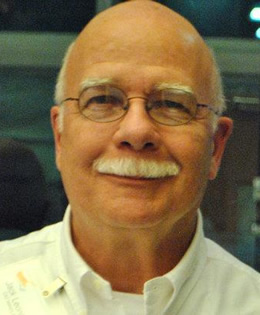| Register Online! | ||


Upcoming Seminars
| Ground Control Instructor Cert | |
| Allegheny County Police Academy | |
| TPR/Use of Force Instructor Cert | |
| Bucks County Academy | |
| TPR/Use of Force Instructor Re-Cert | |
| Bucks County Academy | |
| SHARP Instructor Cert | |
| Allegheny County Academy | |
| SHARP Instructor Re-certification | |
| Allegheny County Police Academy | |
| TPR/Use of Force Instructor Cert | |
| Carlisle Police Department | |
| TPR/Use of Force Instructor Re-Cert | |
| Carlisle Police Department | |
| Edged Weapon Countermeasures Instructor Cert | |
| Allegheny County Police Academy | |
Over the years many individuals have seen fit to deny that law enforcement personnel in general and police officers in particular should not be described as warriors.
Warriors
Staff Instructor
Over the years many individuals have seen fit to deny that law enforcement personnel in general and police officers in particular should not be described as warriors. Apparently these people believe that the term is inappropriate for police officers (Warriors do not "Protect and Serve") or that it should be reserved for members of the military. Such opposition to referring to police officers as warriors was demonstrated rather emphatically a number of years ago. At that time Mr. Bruce K. Siddle and the late Colonel Rex Applegate were given three contracts to present Survival Learning and Point Shooting material at seminars hosted by a state's training administrative body.
During the initial presentation, Mr. Siddle regularly referred to police officers as warriors. Following that seminar, Mr. Siddle was informed by the governing body that they did not wish their police officers to be described as warriors. Feeling strongly in his belief that the term warriors was definitely applicable to police officers, Mr. Siddle changed nothing in his second presentation and continued to refer to the officers as warriors. The third seminar was abruptly cancelled by the hosts. This was by no means the first time police officers were described as warriors. Joseph Wambaugh in his first work of fiction referred to members of the LAPD as The New Centurions. Perhaps because it was a novel as opposed to a seminar, the reference did not cause a noticeable reaction.
Looking at police officers and members of the military in general terms of job descriptions, there are several inescapable similarities. For the most part members of both groups wear uniforms, but it is in the preparation (training) for each vocation where they are alike. Both members of the military and police officers must train, both physically and mentally, for a conflict that can occur the next day, the next week, the next month, or years ahead. The training must be as realistic as possible (you play like you practice), but this must be balanced by safety concerns. Both police and the military must learn specific tasks such as subject control, weapon retention/disarming, and the taking of human life.
The third training consideration, that of taking human life, is certainly weighed more heavily on the side of the military in terms of sheer numbers. However, police officers must also be capable, both mentally and physically, of taking the life of another person. The similarities of preparation are described in detail by both Mr. Siddle in Sharpening The Warrior's Edge (1996) and by Lieutenant Colonel David Grossman in On Killing (2004).
Both of these works explain the implications of stress in both law enforcement and military service. The authors demonstrate not only the effects of stress upon members of both groups when carrying out their duties but also provide specific methods of reducing such stress in order for the personnel to carry out their work more efficiently and safely. Mr. Siddle and Lieutenant Colonel Grossman provide additional guidance as to how the men and women in these arenas can better deal with the additional stress that occurs following a deadly force encounter.
The similarities in both job descriptions and actual practice certainly indicate that members of both vocations can and should be referred to as warriors. In support of this, please note the sub headings of a FLETC tuition-free-program presented by PPCT Instructor/Trainer Brian Willis. They include "The Warrior Pyramid" and "The Warrior Spirit." These are two components of his presentation "Harnessing The Winning Mind and Warrior Spirit Seminar."
What was once found to be unacceptable by a state training body is now promoted by a federal training center. What a difference the passage of time can make.